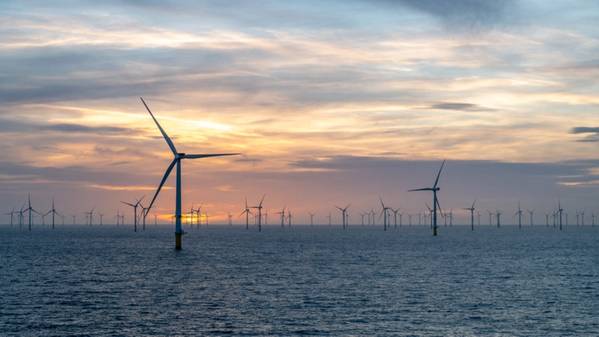
World Bank Group, in collaboration with the Republic of Türkiye’s Ministry of Energy and Natural Resources, has launched a new roadmap today which outlines the opportunities and challenges to deliver viable offshore wind projects in Türkiye.
The Government of Türkiye has set a target of 5 GW of installed capacity for offshore wind power by 2035. The roadmap provides a comprehensive set of recommendations to help realize these ambitions to build a new industry that can meet Türkiye’s future energy demands and sustainability goals.
The roadmap was created and funded as part of a series of offshore wind roadmap studies under the joint Energy Sector Management Assistance Program-International Finance Corporation (ESMAP-IFC) Offshore Wind Development Program, and with support from PROBLUE.
The paper highlights Türkiye’s geographical advantages, natural resources and industrial strengths as key enablers for a competitive offshore wind power industry.
According to the roadmap, favorable offshore wind resources are located near high-demand power centers, offering a large-scale, domestic power generation source which can increase Türkiye’s energy independence and complement other renewable technologies.
The analysis identifies Türkiye’s strategic location, close to European and Asian markets, as an opportunity to become a regional clean energy hub.
Türkiye’s strong industrial base and skilled workforce, particularly its successful onshore wind, shipbuilding and maritime industries, are well-positioned to thrive in the offshore wind supply chain with sufficient project volume and pipeline.
The country's waters have areas with a total technical potential offshore wind resource estimated at 75 GW.
The roadmap outlines the potential for up to 7 GW of offshore wind capacity to be installed by 2040. It also examines the challenges of realizing these prospects.
The analysis has found that most areas with good offshore wind resources are suited to floating foundations solutions, given water depths exceed 50 meters. These areas also have significant environmental and social sensitivities, requiring offshore wind projects to carefully plan and mitigate impacts on protected areas, biodiversity, critical habitats and local communities.
The scenarios in the report illustrate two hypothetical development paths for offshore wind in Türkiye – the low growth, which assumes 3.5 GW of offshore wind power is installed by the end of 2040, and the high growth - which assumes 7 GW of offshore wind power is installed by the end of 2040.
To achieve these scenarios, the roadmap highlights 21 recommended actions for the Government of Türkiye to consider.
This includes setting the country’s vision beyond 2035 as part of long-term energy system planning, implementing regulatory and policy frameworks which proactively de-risk projects, establishing a bankable power purchase agreement (PPA), introducing best-practice health and safety standards, upgrading grid and port infrastructure, and development of domestic supply chains.
“A resilient, net-zero pathway powered by offshore wind can help Türkiye meet its development and climate goals while strengthening energy security. The roadmap highlights the opportunities for Türkiye’s green transition to attract long-term investment, generate thousands of jobs and upskill the workforce in a future-focused industry. Strong partnerships between government, industry and communities will be crucial to delivering these goals,” said Yasemin Orucu, Project Lead at the World Bank.